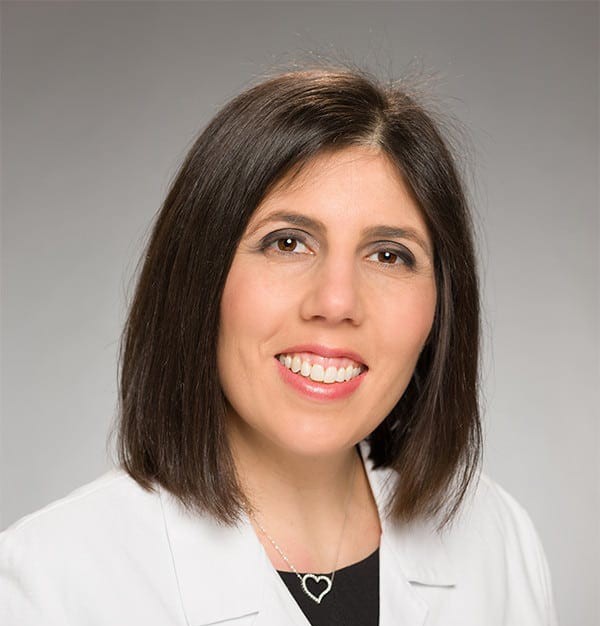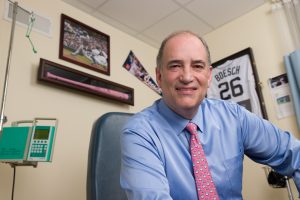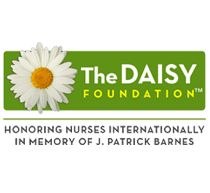“I’m constantly impressed by the strength and encouragement that spouses, siblings, children and friends give to people who are facing cancer, and I can tell you that it makes a huge difference in my patients’ lives,” says Dr. Levenbach. “But I also know that providing that support for a loved one can be challenging. First and foremost, there’s the concern for the patient’s well-being. Additionally, some family members and friends experience a sense of helplessness, a feeling that, ‘I wish there was something I could do to make this all better.’ Further, there can be uncertainty about what to say and what not to say, and I’ve found that this worry often involves how to talk about hair loss.”
Dr. Levenbach’s advice to people struggling to find the right words: Understand how your loved one feels about the issue, and respond to her feelings, not your own.
“I understand that it can be heart-breaking to look at your wife or daughter or sister and see how her appearance has changed because of cancer and its treatment, but the reason you’re so upset is that you care for her and want the best for her, and what’s best is ‘meeting her where she is’ – not where you are.”
The medical oncologist, who has a practice emphasis on breast cancer and has conducted clinical research on the disease since her fellowship at the Fox Chase Cancer Center/Temple University Hospital in Philadelphia, explains that patients have widely varying responses to seeing their hair thin or fall out as they go through treatment.
“Some women embrace it, and have no interest in wearing a wig or head covering as they go about their daily lives. For others, obtaining a high-quality wig is a priority, while some women want to minimize how much they are out and about as they are experiencing hair loss. The important thing is to understand how the person you love feels and to support her in the approach that’s best for her,” Dr. Levenbach says.
She adds that this sometimes can be difficult when there is a mismatch between how a woman is dealing with her hair loss and how it is affecting someone who cares for her. “If losing her hair – or any other aspect of her experience with breast cancer – is really hard for a patient, encouragement and support are important, but that doesn’t mean giving unhelpful advice to ‘cheer up’ or ‘look on the bright side.’ Conversely, if a woman – or man – with breast cancer is in a good place emotionally, relatives or friends who are having a hard time with the diagnosis should avoid repeatedly telling the person how sorry or upset or worried they are. Psychologists, social workers, and other counseling professionals can be of great help both to people who have cancer and to their partners or others struggling to deal with the illness and all of its ramifications. If you are experiencing significant worries or anxiety because someone in your life has cancer, it’s important to talk with one of those professionals, both for your own sake and so that you’re best able to “be there” for your loved one.”
*****
Dr. Levenbach earned her medical degree from Temple University Medical School and completed her internal medicine residency at Temple University Hospital. She then completed her medical oncology and hematology fellowship at Fox Chase Cancer Center/Temple University Hospital before returning to New Jersey, where she was born and raised, to join the Moorestown, NJ offices of Regional Cancer Care Associates. Dr. Levenbach is among the 90+ cancer specialists who treat patients at 25 RCCA care centers located throughout New Jersey, Connecticut, Maryland, and the Washington, DC, area. RCCA oncologists and hematologists see more than 23,000 new patients each year and provide care to more than 225,000 established patients, collaborating closely with their patients’ other physicians. They offer patients the latest in cutting-edge treatments, including immunotherapies and targeted therapy, as well as access to a wide range of clinical trials. In addition to serving patients who have solid tumors, blood-based cancers, and benign blood disorders such as anemia, RCCA care centers also provide infusion services to people with a number of non-oncologic conditions—including multiple sclerosis, Crohn’s disease, asthma, and rheumatoid arthritis—who take intravenously-administered medications.
To learn more about RCCA, call 1-844-346-7222 or visit RCCA.com.
References:
- American Cancer Society. Key statistics for breast cancer. https://www.cancer.org/cancer/breast-cancer/about/how-common-is-breast-cancer.html. Accessed October 4,, 2022.
- American Cancer Society. Key statistics for breast cancer in men. https://www.cancer.org/cancer/breast-cancer-in-men/about/key-statistics.html. Accessed October 4, 2022.
To learn more about breast cancer treatment and hair loss
As with all medical subjects, it’s important to look to reliable web sites when searching the internet for information on how various therapies for breast cancer may affect hair thinning and hair loss. Typically, the web sites of government health agencies, medical societies, well-known medical institutions, and large, long-established non-profit organizations are good places to start, although it’s important to vet all web-based information with your oncologist or other physician before taking any action. Web sites that address this issue include:
- National Cancer Institute
- American Cancer Society








